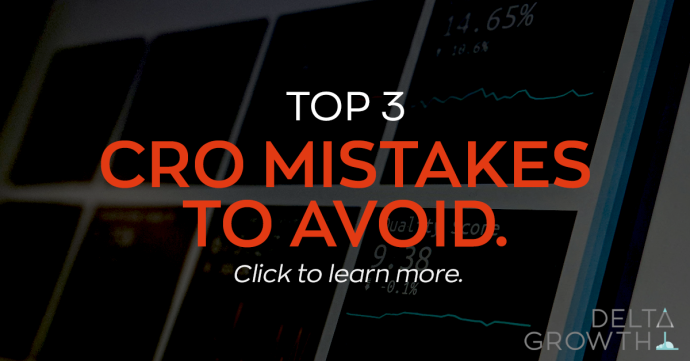In today’s data-driven world, marketing campaigns live and die by their ability to demonstrate measurable results. But here’s the challenge: not all companies should be measuring success the same way. A B2B software company, an eCommerce store, and a local service provider will all define “winning” differently.
Understanding which key performance indicators (KPIs) matter most to your business model is the first step in optimizing campaign performance and maximizing ROI.
Why Metrics Matter in Digital Marketing
Metrics provide the feedback loop that tells marketers whether their strategies are working or need adjusting. Without the right data points, campaigns risk drifting in the dark – generating impressions but not conversions, clicks without value, or leads that don’t translate into revenue.
That said, measuring everything is a common trap. Instead, focus on metrics that align with your business goals and the objectives of your campaigns.
Core Metrics to Track Across All Campaigns
While the exact KPIs may differ, most campaigns benefit from monitoring a few universal metrics:
- Click-Through Rate (CTR): Indicates ad relevance and engagement
- Conversion Rate (CVR): Measures how well you turn visitors into leads or customers.
- Cost Per Acquisition (CPA): The average cost to acquire a new customer or lead.
- Return on Ad Spend (ROAS): A critical profitability metric, especially in eCommerce, that looks at how much revenue was generated and divides that by the cost of the campaign.
- Customer Lifetime Value (CLV): Helps evaluate the long-term impact of your campaigns, especially relevant for B2B businesses.
B2B Campaign Metrics
B2B companies often face longer sales cycles and more complex decision-making. As a result, they rely heavily on lead quality and pipeline progression rather than immediate conversions.
Key KPIs for B2B:
- Form Submissions / Lead Gen Volume: The first step in filling the pipeline.
- Marketing Qualified Leads (MQLs): Leads that meet your ideal customer profile.
- Sales Qualified Leads (SQLs): Leads that the sales team has validated as opportunities.
- Cost Per Lead (CPL): Critical for measuring efficiency.
- Pipeline Contribution: Percentage of sales pipeline influenced by marketing.
B2C Campaign Metrics
B2C companies, particularly those selling services or non-eCommerce products, focus more on engagement and immediate conversions. The buying journey is typically shorter, with fewer decision-makers involved.
Key KPIs for B2C:
- Website Conversions: Newsletter sign-ups, trial requests, or booking forms.
- Cost Per Conversion: The efficiency of generating customer actions.
- Engagement Metrics: CTR, time on site, and video completions (important for storytelling-driven campaigns).
- Brand Awareness Metrics: Reach, impressions, and ad recall can matter more when driving volume at scale.
eCommerce Campaign Metrics
For e-commerce businesses, marketing performance is directly tied to revenue. Unlike B2B, where a lead may take months to convert, eCommerce thrives on quick transactions and repeat purchases.
Key KPIs for eCommerce:
- Purchase Conversions: The core metric – how many customers bought your product.
- Average Order Value (AOV): Helps assess the impact of upsells and promotions.
- ROAS (Return on Ad Spend): Determines if campaigns are profitable.
- Cart Abandonment Rate: A critical area for recovery strategies.
- Customer Retention Rate: Essential for long-term growth.
Choosing the Right Metrics for Your Campaigns
Here’s the truth: not every metric deserves your attention. A high CTR doesn’t mean much if no one is converting, and a surge in impressions may not matter if your target audience isn’t engaging with your ad.
To avoid wasted effort:
- Define campaign objectives first. Is the goal to drive sales, generate leads, or build awareness?
- Align metrics to your business model. B2B should emphasize leads and pipeline, while eCommerce should focus on ROAS and purchases.
- Balance short-term and long-term metrics. For example, track immediate conversions but also monitor CLV for sustainable growth.
The best marketing campaigns aren’t the ones that generate the most clicks – they’re the ones that drive meaningful business results. By identifying the right KPIs for your industry and business model, you gain the clarity to optimize campaigns, allocate budgets effectively, and prove the true impact of marketing.
Whether you’re B2B, B2C, or eCommerce, the key isn’t measuring everything – it’s measuring what matters most.
Answers to Common Questions About Metrics
How do I choose the right KPIs for my campaign?
This will vary depending on your campaign goal, but roughly:
Awareness → Impressions, reach, website traffic
Consideration → Engagement, CTR, lead forms submitted
Conversion → Sales, CPA, ROAS
What’s the difference between a KPI and a Metric?
A metric is any number tracked (e.g: pageviews). A KPI is a metric directly tied to your campaign/business objective (e.g: conversion rate from pageviews)
How to set targets for KPIs:
Ideally, you will use historical data; however, sometimes you might not have that, so leveraging industry benchmarks and business objectives works.
What are some tools to measure KPIs?
There are several in market, but most-common ones are Google Analytics 4, Paid Media platforms (like Google Ads), Hubspot or Salesforce (CRMs), SEO tools (SEMrush or AHrefs)
How can Delta Growth help you measure what matters?
At Delta Growth, we help businesses go beyond surface-level marketing by aligning campaigns with clear, measurable objectives. Our role is to partner with you in defining what success looks like – whether that’s increasing lead quality, driving more online purchases, or improving engagement at key touchpoints.
We’ll help build a strategy that connects your business goals to user behaviour. Through detailed audits, data-driven insights, and ongoing analysis, we uncover opportunities to strengthen your funnel and maximize conversions. With our expertise in analytics and CRO, we ensure every campaign decision is backed by data – turning objectives into outcomes and visitors into loyal customers.
Book a Discovery Call with Delta Growth Today




